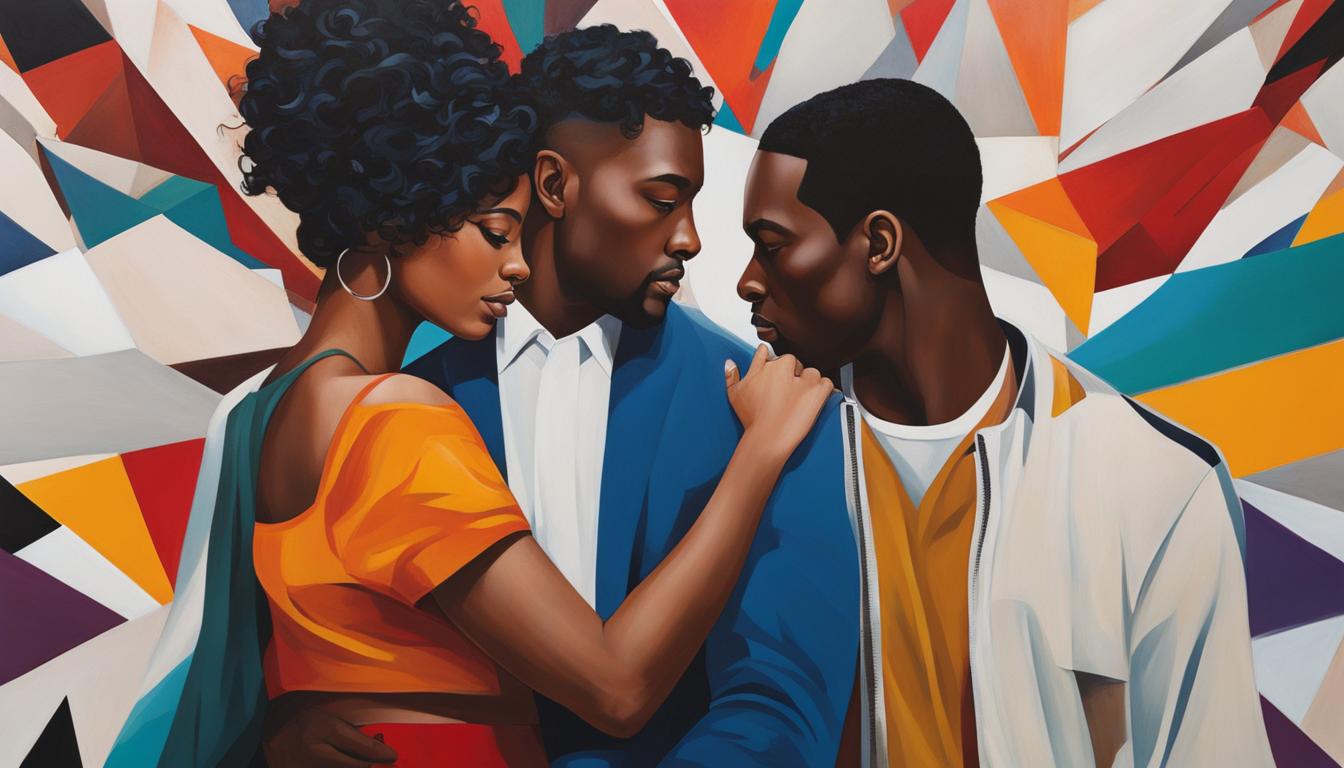Interracial relationships have been a source of stereotypes and misconceptions for far too long. These biases can place unnecessary burdens on couples and hinder their ability to thrive. It is important to address and challenge these stereotypes in order to create a more inclusive and accepting society.
By debunking the stereotypes associated with interracial relationships, we can dispel misconceptions and break down barriers. This means acknowledging that love and happiness can be found in relationships that transcend racial boundaries.
Addressing interracial relationship stereotypes requires examining the negative perceptions that exist and confronting them head-on. It means challenging the notion that certain races are more suitable for each other and embracing the diversity that comes with interracial dating and marriage.
Combating stereotypes also involves creating spaces where interracial couples can feel supported and validated. By normalizing interracial relationships, we can help dismantle the biases that undermine them.
It is crucial that we recognize and address the challenges faced by interracial couples. Through education, empathy, and open dialogue, we can pave the way for a more inclusive and accepting future.
Key Takeaways
- Interracial relationships are often subject to stereotypes and misconceptions.
- Debunking these stereotypes is essential for creating a more inclusive society.
- Addressing negative perceptions and embracing diversity in relationships is crucial.
- Supporting and normalizing interracial relationships can help combat stereotypes.
- Open dialogue and empathy are necessary for overcoming challenges faced by interracial couples.
Understanding the Challenges of Interracial Dating
Interracial dating brings excitement, love, and connection between individuals from different racial backgrounds. However, it is not without its challenges. Let’s explore some of the hurdles and difficulties that interracial couples may face in their journey towards love and happiness.
Racial Slurs and Derogatory Comments
Unfortunately, racial slurs and derogatory comments still persist in our society, even in the realm of dating. Interracial couples may encounter hurtful remarks or offensive language from others who hold discriminatory beliefs. These hurtful words can deeply impact individuals in interracial relationships, creating feelings of shame, anger, and self-doubt.
“It’s disheartening to hear racial slurs or derogatory comments about our relationship,” says Jasmine Johnson, an African American woman in an interracial partnership. “It can make you question your self-worth and the validity of your love.”
Negative Perceptions
Interracial dating continues to face negative perceptions and stereotypes. Some people hold biases and misconceptions, particularly when it comes to black men with white women compared to white men with black women. This disparity in perceptions can lead to additional challenges and scrutiny for interracial couples.
“I’ve noticed that when my partner and I walk together, we receive more judgment and stares compared to when we’re in our own racial groups,” shares David Thompson, who is in an interracial relationship with his black girlfriend. “It’s as if people think there’s something wrong with us being together, just because of our different races.”
Criticism Faced by Black Women
In interracial dating, black women often face unique challenges and criticism from various sources. They may encounter disapproval and hostility not only from black men who feel they are “betraying their race,” but also from other black women who view their decision to date outside their race as a rejection of their community.
“As a black woman, I’ve faced criticism both from black men who believe I should exclusively date within my race and from other black women who accuse me of thinking I’m better than them,” explains Keisha Jackson, who is in an interracial relationship with her white partner. “It’s disheartening to face prejudice from within your own community.”
Dating within one’s race is certainly an option in the realm of interracial dating. However, individuals should have the freedom to explore love beyond racial boundaries without fear of judgment or backlash.
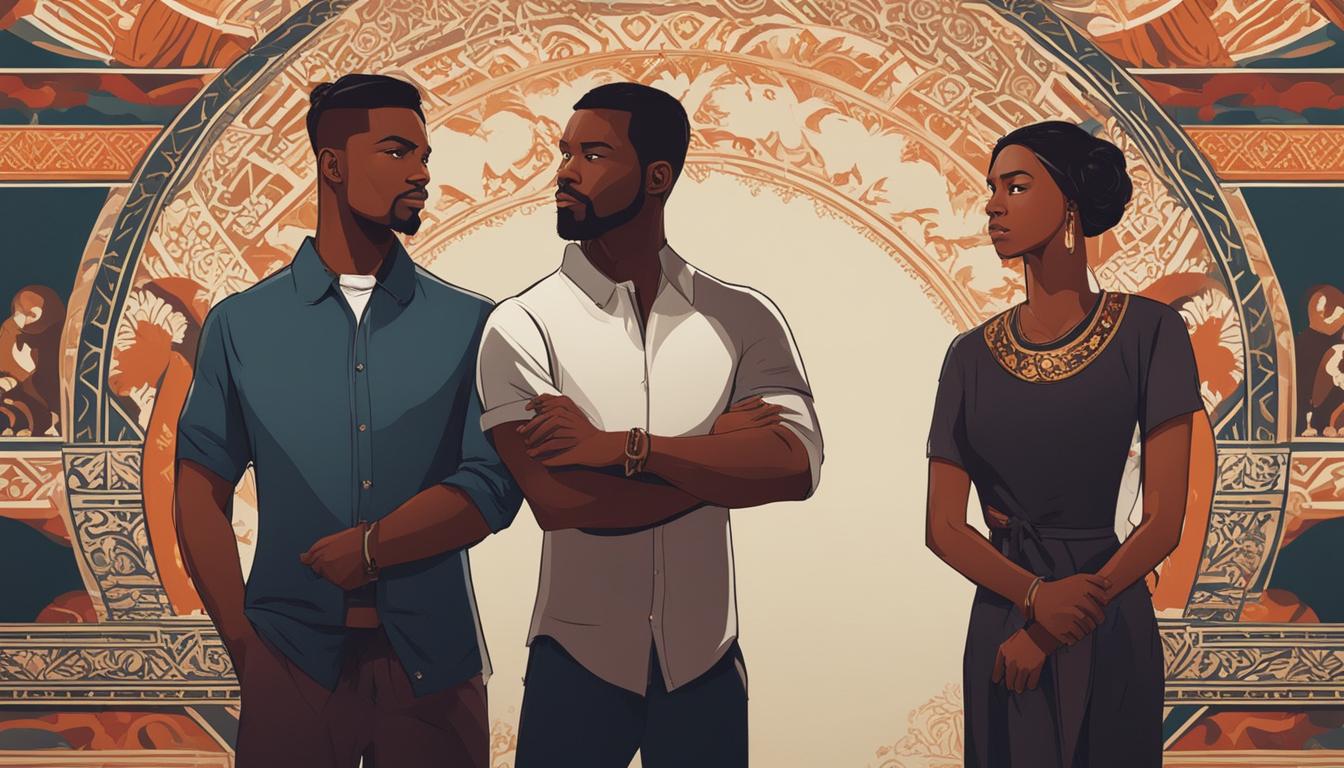
Societal Biases and Their Impact on Interracial Relationships
Societal biases play a significant role in shaping our perceptions of interracial relationships. Assumptions, negative perceptions, and a lack of support contribute to the challenges faced by interracial couples. These biases prevent interracial relationships from being normalized and hinder the formation of inclusive and diverse communities.
Interracial couples often find themselves confronted with assumptions that they don’t belong together. This can be due to ingrained stereotypes and preconceived notions that limit our understanding of love and relationships. These assumptions disregard the unique connection and genuine love that bring people from different backgrounds together.
Negative perceptions of interracial couples further compound the challenges they face. These perceptions can stem from societal prejudices and misconceptions, perpetuating harmful stereotypes. It is crucial to challenge these negative narratives and promote acceptance and understanding.
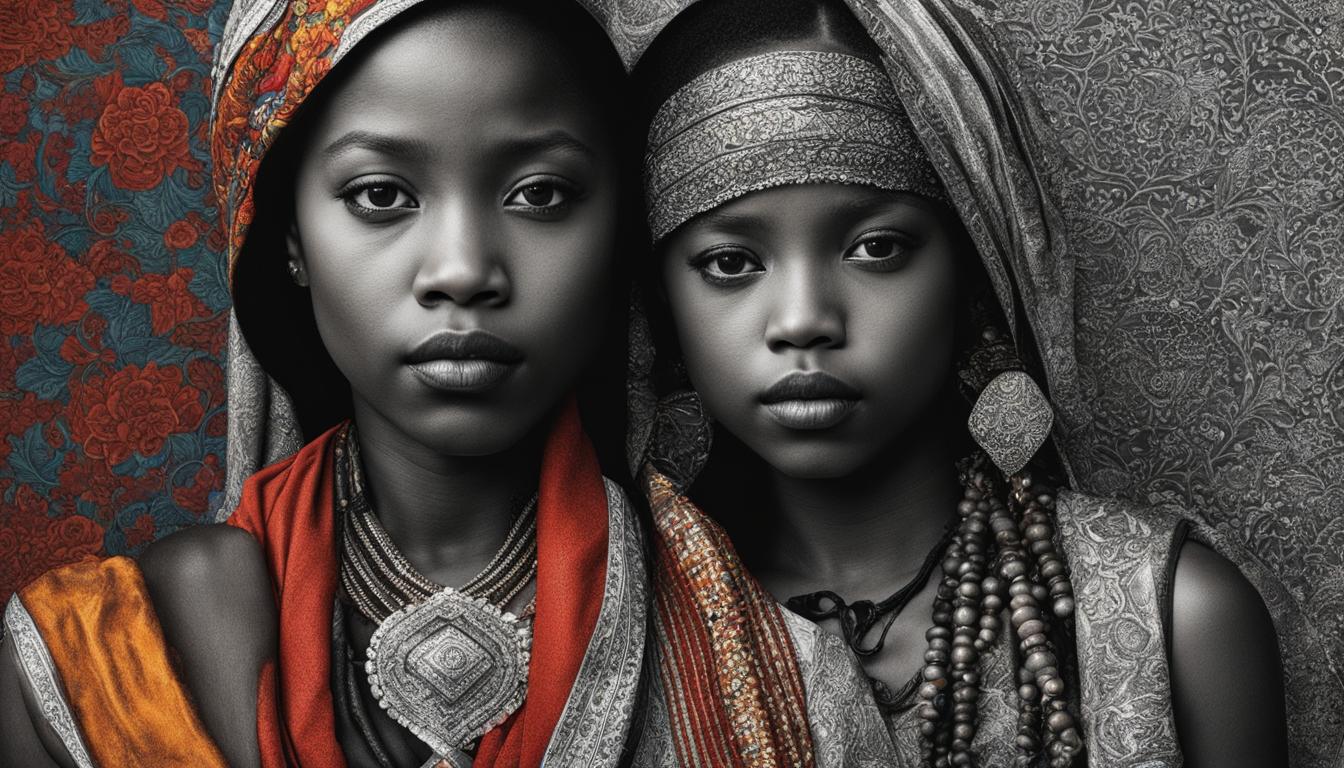
Interracial couples often encounter a lack of support, particularly from extended family members. This lack of support can stem from ingrained societal biases and a resistance to change. Overcoming this challenge requires education and open dialogue to foster empathy and acceptance.
By actively addressing societal biases, we can create an environment that supports and celebrates interracial relationships. Breaking down these barriers is essential in creating a society that embraces diversity, love, and inclusivity. A journey towards acceptance begins with acknowledging and challenging our own biases, promoting understanding, and fostering love in all its beautiful forms.
Benefits and Difficulties of Interracial Relationships
Interracial relationships offer a multitude of benefits that can enrich the lives of those involved. At the core, love knows no boundaries, and these relationships can bring immense joy, happiness, and personal growth. Individuals from different racial backgrounds come together, breaking down barriers and fostering a deeper understanding of diversity and cultural exchange.
However, it is important to acknowledge that interracial relationships also face their share of difficulties. One significant challenge is the societal acceptance of such relationships. Despite progress, there still remains a degree of disapproval and skepticism from certain segments of society. Prejudices and stereotypes persist, impacting the experience of interracial couples.
“Interracial relationships are powerful sources of positive change and can contribute to a more inclusive society. Unfortunately, they are not always readily accepted by others.”
Disapproval from family and friends can be a major hurdle for interracial couples. Loved ones may struggle to accept the relationship due to deeply ingrained cultural or racial biases. This disapproval can lead to strained relationships and added emotional stress for those involved.
Furthermore, interracial couples often face discrimination and prejudice from society at large. This can manifest in various ways, ranging from subtle forms of bias to overt acts of racism. Overcoming these challenges requires resilience, strength, and a determination to persevere in the face of adversity.
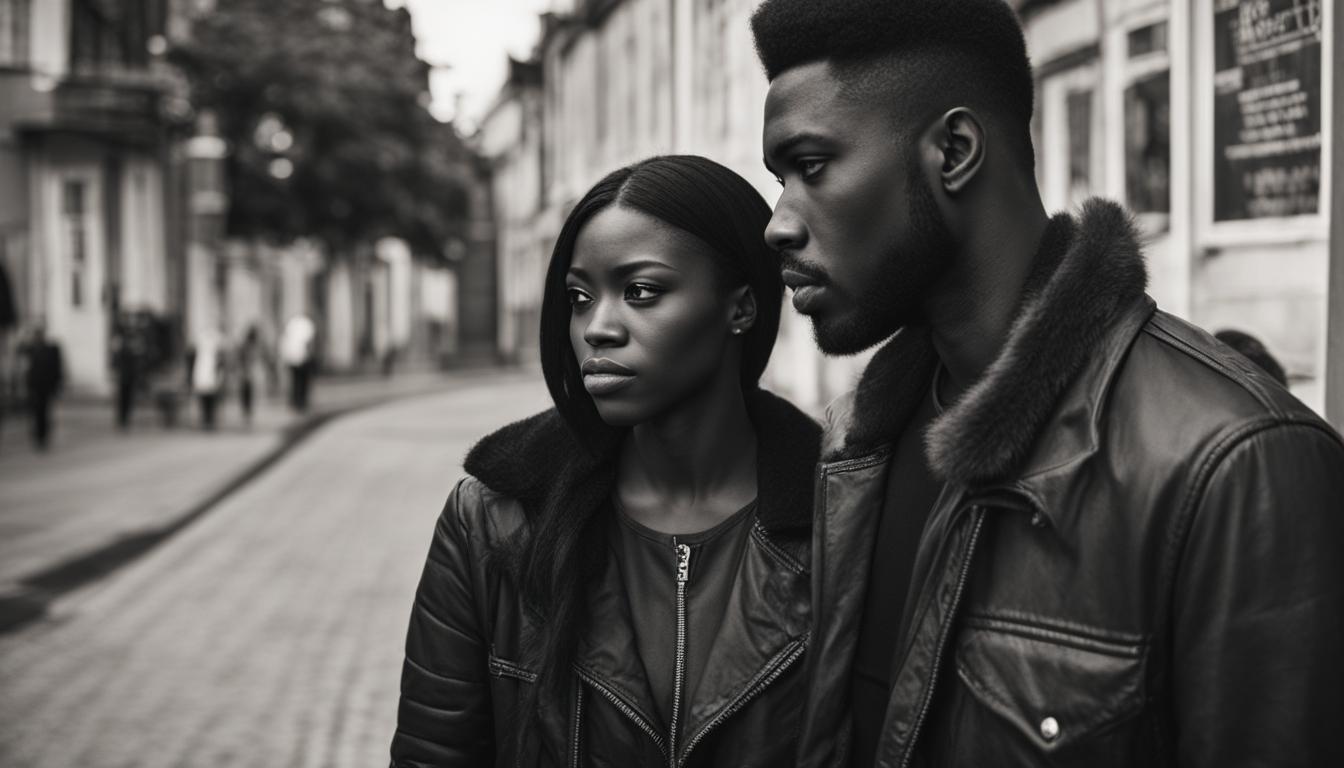
Despite the difficulties, interracial relationships bring immense value and can serve as beacons of hope and progress. They challenge societal norms and push for greater acceptance and inclusivity. In navigating through the benefits and difficulties, interracial couples continue to redefine what it means to love and build meaningful connections.
Overcoming Racial Stereotypes and Prejudices
In interracial relationships, it is crucial to overcome racial stereotypes and prejudices. These biases can significantly impact how people view their partners and hinder the development of a healthy and fulfilling relationship. Overcoming these challenges requires time, effort, and a commitment to seeing each other as individuals, rather than representatives of a particular race.
Negative attitudes towards certain racial groups can create barriers in interracial relationships. Preconceived notions and stereotypes can influence perceptions, leading to biased judgments and unfair expectations. It is important to recognize and challenge these biases, allowing partners to be seen and appreciated for who they truly are.
Embracing diversity and combating racial stereotypes go hand in hand. By actively working towards dispelling these stereotypes, we can foster a more inclusive and accepting society that values individuals for their unique qualities, rather than prejudiced assumptions based on race.

“Overcoming racial stereotypes is crucial in building trust and understanding in interracial relationships. It requires acknowledging the impact of biases and consciously challenging them to foster genuine connections.” – Dr. Patricia Thompson
Overcoming racial stereotypes and prejudices is an ongoing process that requires open communication, empathy, and education. Couples must actively engage in conversations about race, confront their own biases, and work together to create an environment that celebrates diversity.
By viewing partners as individuals rather than symbols of their race, interracial couples can strengthen their bond and create a relationship based on love, respect, and equality. It is through these efforts that we can ultimately break down barriers, cultivate understanding, and build a more inclusive society for all.
Cultural Awareness and Understanding in Interracial Relationships
Navigating cultural differences is essential in interracial relationships. Partners from different backgrounds should not only acknowledge but also embrace each other’s cultural heritage. By fostering cultural awareness and understanding, couples can create a rich and harmonious bond that celebrates diversity.
In navigating cultural differences, it is crucial for partners to respect and appreciate each other’s cultural backgrounds. This involves being open-minded, willing to learn, and compromising when necessary. Embracing each other’s cultural traditions, values, and beliefs allows for a deeper understanding of one another.
One way to increase cultural awareness and understanding is by engaging in cultural events and activities together. This can include attending festivals, visiting museums, trying traditional cuisines, or participating in cultural celebrations. These shared experiences help foster a sense of unity and strengthen the connection between partners.
“Embracing diversity and actively learning and participating in each other’s cultural backgrounds is a beautiful way to navigate the complexities of an interracial relationship.” – Sarah Johnson, Relationship Coach
Cultural awareness and understanding go beyond acknowledging differences; it also involves celebrating similarities and finding common ground. Recognizing that every culture has its unique beauty and strengths can foster mutual respect and a deeper connection within the relationship.
The Impact of Family and Friends on Interracial Relationships
In interracial relationships, the impact of family and friends cannot be underestimated. They are often a source of support, love, and understanding. However, there are instances where disapproval from loved ones can create tension and conflict. It is crucial to navigate these challenges to ensure a healthy and fulfilling relationship.
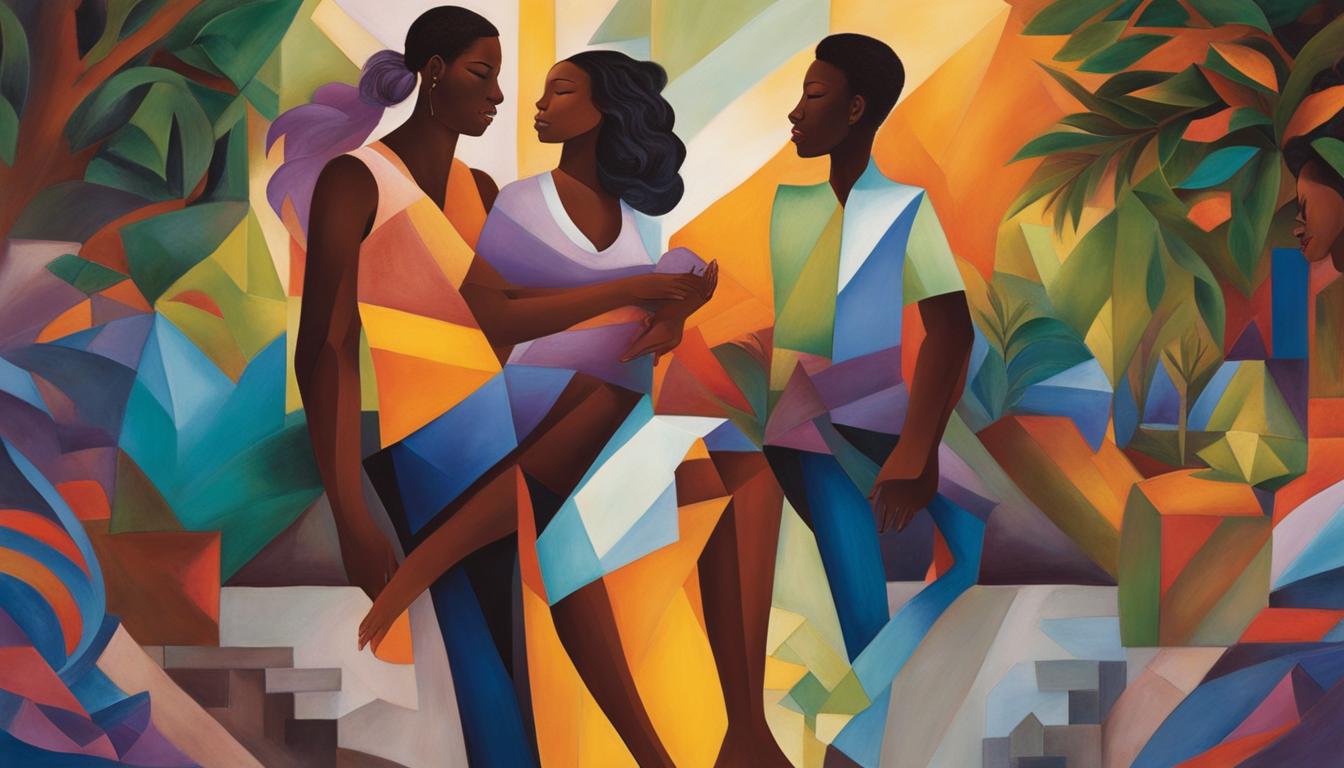
Managing Disapproval from Loved Ones
When faced with disapproval from family and friends, open communication becomes even more important. Honest and respectful conversations can help address their concerns, share your perspective, and hopefully, gain their understanding over time. Remember, change takes time, and it is crucial to be patient during this process.
“My family initially had concerns about my interracial relationship, but through open dialogue and shared experiences, they came to understand and accept our love. It was challenging, but it was worth it to have their support.” – Jasmine, in an interracial relationship with Alex.
Seeking Support from Outside Communities
When faced with disapproval, seeking support from outside communities can be invaluable. Online platforms, forums, and events specifically catered to interracial couples can provide a safe space to share experiences, gain advice, and find solace. These communities can help you navigate the challenges and remind you that you are not alone in your journey.
“Discovering online communities for interracial couples was a game-changer for us. It provided a sense of belonging and allowed us to connect with others who have gone through similar experiences. We found comfort and guidance in their stories and advice.” – Mark and Emily, an interracial couple.
In conclusion, it is essential to acknowledge and address the impact of family and friends on interracial relationships. While their disapproval may create obstacles, open communication and seeking support from outside communities can help you overcome these challenges. Remember, your love is valid, and together, you can navigate the path to a fulfilling and supportive relationship.
Navigating Differences in Communication Styles
Effective communication is the cornerstone of any successful relationship, including interracial relationships. However, it is important to acknowledge that communication styles may differ between individuals from different racial or ethnic backgrounds.
Differences in Communication Styles:
When partners in an interracial relationship have different communication styles, it can sometimes lead to misunderstandings or misinterpretations. For example, one partner may prefer to express themselves openly and directly, while the other may be more inclined to remain reserved or rely on nonverbal cues. These variances can create challenges in understanding each other’s intentions or needs.
“Communication works for those who work at it.” -John Powell
Active Listening in Interracial Relationships:
Active listening is a crucial skill that can bridge the gap between different communication styles in interracial relationships. It involves giving your partner undivided attention, acknowledging their perspective, and demonstrating empathy. By actively listening to your partner, you can understand their viewpoints and feelings more deeply, fostering a stronger connection and resolving conflicts more effectively.
Open and Honest Communication about Preferences
To navigate differences in communication styles, it is essential to foster an environment of open and honest communication. Discuss your preferred communication methods with your partner and express your needs and expectations clearly. This can involve setting boundaries, sharing your comfort levels with certain topics, or establishing communication strategies that work for both of you.
Remember, effective communication in interracial relationships involves actively listening, respecting each other’s styles, and finding common ground. By embracing openness, empathy, and understanding, you can bridge communication gaps and cultivate a stronger bond in your relationship.
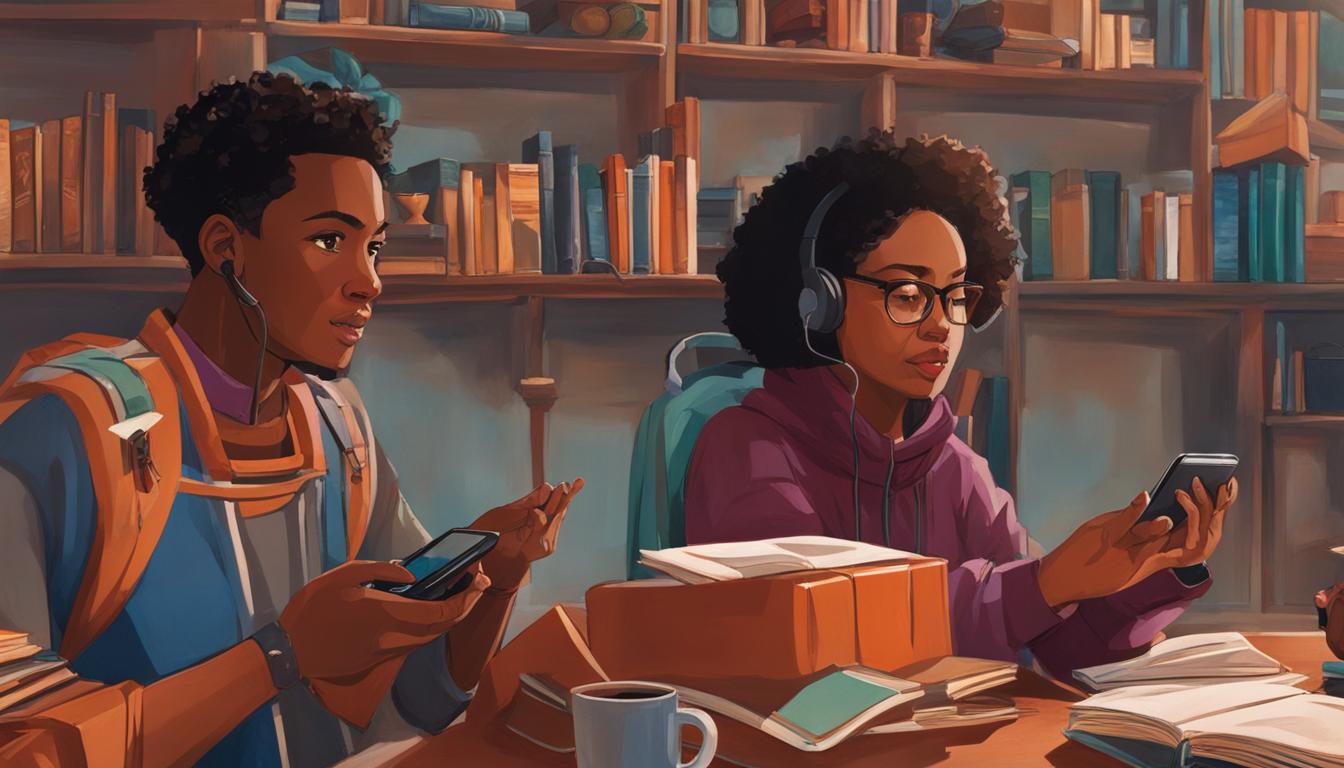
Addressing Power Dynamics in Interracial Relationships
Interracial relationships can sometimes be affected by power imbalances based on race or ethnicity. It is essential for partners to address these dynamics and work towards creating a more equitable and respectful relationship.
Open and honest communication about experiences is crucial in addressing power dynamics. By sharing their perspectives, challenges, and privileges, partners can gain a deeper understanding of each other’s lived realities and the impact it may have on their relationship.
This open dialogue allows couples to identify any existing power imbalances and work towards a more balanced partnership. It provides an opportunity for both partners to express their needs, concerns, and aspirations, fostering a sense of trust and mutual respect.
By acknowledging and actively addressing power dynamics, couples can develop strategies to ensure that decision-making, responsibilities, and resources are shared in an equitable manner. This may involve reevaluating societal expectations, challenging ingrained biases, and dismantling harmful stereotypes.
Promoting Equal Influence and Agency
One way to address power imbalances is by promoting equal influence and agency within the relationship. This means actively involving both partners in decision-making processes and valuing their input.
“Addressing power dynamics requires recognizing the role that race and ethnicity play in shaping our experiences. By having open conversations and actively working towards equitable dynamics, couples can create a relationship built on respect and fairness.”
Partners can make a conscious effort to validate each other’s thoughts, feelings, and perspectives. They can actively listen, show empathy, and give space for both partners to contribute meaningfully to discussions. Trusting one another’s judgment and encouraging autonomy can help ensure that power is not concentrated in one person’s hands.
Challenging Assumptions and Stereotypes
Challenging assumptions and stereotypes is another essential aspect of addressing power dynamics. Partners should be aware of their own biases and work towards dismantling them. This involves acknowledging and questioning preconceived notions about race, ethnicity, and power within the relationship.
By challenging stereotypes and assumptions, couples can create an environment where both partners feel validated and valued for their individual identities. They can actively reject the notion that one race or ethnicity holds inherent power over another and instead embrace the richness and diversity that each person brings to the relationship.
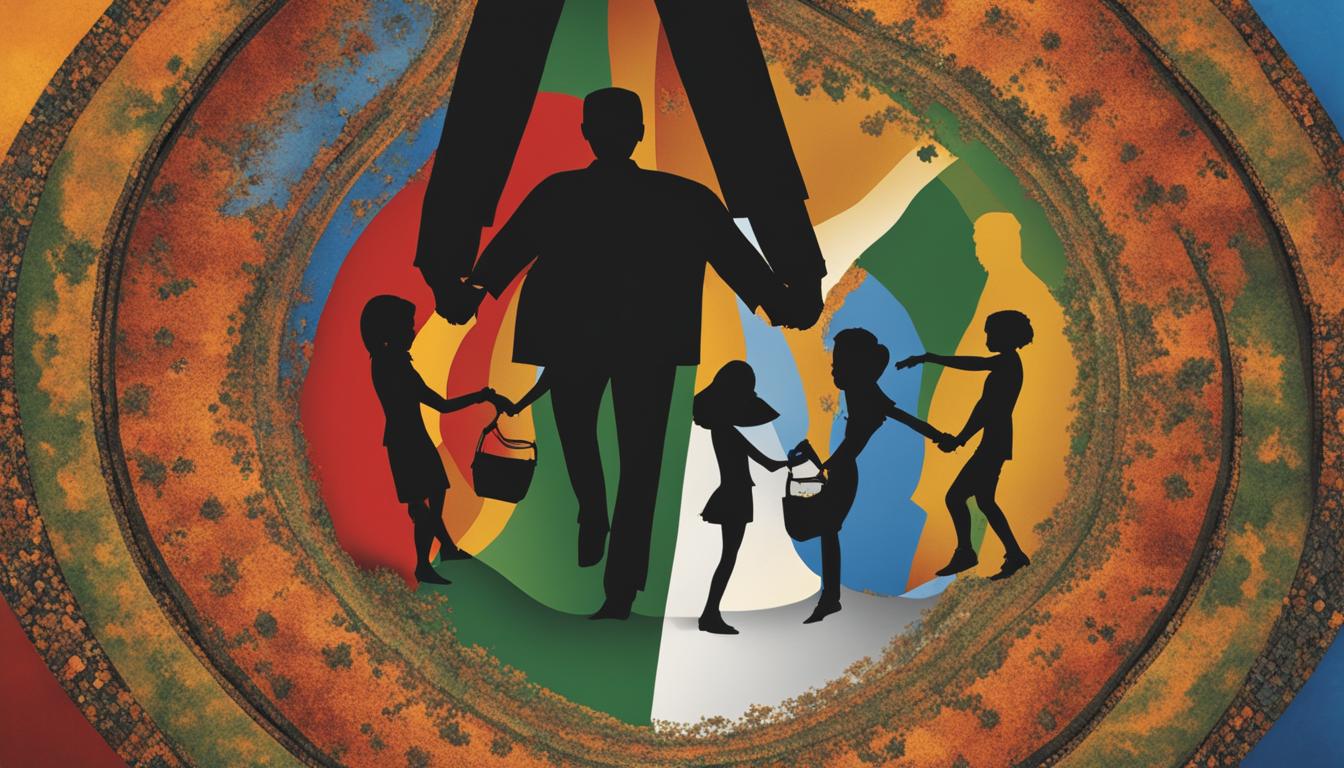
Addressing power dynamics in interracial relationships requires ongoing commitment and effort from both partners. It involves creating a safe and supportive space where open and honest communication about experiences can take place. By actively working towards equality, respect, and understanding, couples can build strong and resilient relationships that transcend societal expectations and empower each other.
Finding Common Ground in Interracial Relationships
In interracial relationships, finding common ground is essential for building a strong and harmonious connection. It involves discovering shared values and interests that bring individuals together, transcending racial and cultural differences. By focusing on what unites them rather than what sets them apart, couples can cultivate a deep understanding and appreciation for one another.
Respecting cultural differences is a fundamental aspect of building common ground. Each partner brings their unique background and heritage to the relationship, enriching it with diverse perspectives and experiences. It is crucial to embrace and celebrate these differences, recognizing them as strengths that contribute to the relationship’s growth and depth.
“In interracial relationships, finding common ground requires respect for each other’s cultural differences. It is an opportunity to learn and grow together, creating a bond that transcends race and ethnicity.”
By actively incorporating cultural differences into the relationship, couples can deepen their understanding and expand their horizons. This can involve participating in cultural events, trying new cuisines, or learning about traditional practices. These shared experiences foster a sense of belonging and mutual respect, creating a solid foundation for the relationship.
Shared values also play a vital role in developing common ground. In an interracial relationship, individuals may have different cultural backgrounds, but they often share core principles such as respect, honesty, and kindness. Identifying and embracing these common values helps create alignment and a shared vision for the future.
Building common ground requires open communication and a genuine willingness to understand and appreciate one another. It involves active listening, empathy, and a genuine desire to bridge the gap between cultures. By continuously learning and growing together, interracial couples can nurture a relationship that is rooted in love, respect, and shared experiences.
Finding common ground in interracial relationships is both a beautiful journey and a rewarding destination. It is a testament to the power of love and the potential for unity despite societal biases and prejudices. By embracing shared values, respecting cultural differences, and cultivating a deep understanding of one another, interracial couples can create a vibrant and lasting bond that surpasses boundaries and strengthens the fabric of our diverse world.
Managing Conflicts and Resolving Differences
In any relationship, conflicts are inevitable, and this holds true for interracial relationships as well. However, effective conflict resolution is key to maintaining a healthy and harmonious partnership.
When it comes to managing conflicts in interracial relationships, it is essential to practice active listening, empathy, and respect for each other’s perspectives. Take the time to truly understand your partner’s point of view and validate their feelings. By doing so, you can create a safe space for open and honest communication.
Embracing cultural differences is another crucial aspect of conflict resolution in interracial relationships. Recognize that your upbringing and cultural background shape your values, beliefs, and behaviors. Rather than viewing these differences as barriers, embrace them as opportunities for growth and understanding.
By incorporating elements from each other’s cultures, you can create a unique and enriched relationship. Celebrating and appreciating your partner’s cultural heritage fosters a sense of belonging and acceptance, strengthening the bond between you. This inclusive approach allows you to navigate conflicts with sensitivity and gain a deeper appreciation for each other.
Remember, conflict resolution is not about winning or losing but finding common ground and mutually beneficial solutions. Together, you and your partner can overcome conflicts, building a strong foundation for a fulfilling and lasting relationship.
Embracing Cultural Differences in Conflict Resolution
“Embracing cultural differences can lead to more harmonious conflict resolution, promoting understanding and mutual respect.” – Dr. Maria Martinez, Couples Therapist
Conclusion
Interracial relationships face challenges due to stereotypes and prejudices deeply ingrained in society. However, by actively addressing these issues, embracing differences, and celebrating cultural diversity, couples can build strong and fulfilling partnerships. Overcoming the stereotypes that surround interracial relationships is a crucial step towards creating a more inclusive and accepting society.
It is important to recognize the benefits of interracial relationships. Love and happiness should be prioritized above societal expectations and biases. By defying the stereotypes and misconceptions, couples in interracial relationships can inspire change and promote a more tolerant and understanding world.
While there are difficulties to navigate, such as disapproval from family and friends and the discrimination faced by interracial couples, it is essential to stand together and support one another. By seeking support from online communities and events specifically designed for interracial couples, individuals can find solace and encouragement in those who share similar experiences.
Ultimately, the journey of overcoming stereotypes and challenges in interracial relationships requires active communication, respect, accountability, and a deep understanding of each other’s cultural backgrounds. By building a foundation of love and mutual respect, couples can create harmonious and enriching relationships. It is crucial for society as a whole to continue working towards acceptance, understanding, and celebrating all types of relationships, regardless of race or ethnicity.
FAQ
What are some common stereotypes about interracial relationships?
Common stereotypes about interracial relationships include assumptions that these relationships are not normalizing interracial contact and that individuals in these relationships don’t belong together.
What are the challenges of interracial dating?
Interracial dating can involve facing racial slurs and derogatory comments from others. Negative perceptions exist, particularly concerning black men with white women compared to white men with black women. Black women may face criticism and hostility from both black men and other black women.
How do societal biases impact interracial relationships?
Societal biases can lead to assumptions that interracial couples don’t belong together and negative perceptions about their relationships. Additionally, interracial couples often receive less support from extended family members.
What are the benefits and difficulties of interracial relationships?
Interracial relationships offer benefits such as love and happiness, but they also face difficulties including disapproval and criticism from family and friends, as well as discrimination and prejudice.
How can racial stereotypes and prejudices be overcome in interracial relationships?
Overcoming racial stereotypes and prejudices in interracial relationships requires recognizing and challenging negative attitudes towards certain racial groups. It takes time and effort to see each other as individuals instead of representatives of a particular race.
How can cultural awareness and understanding be fostered in interracial relationships?
Cultural awareness and understanding can be fostered in interracial relationships through respect and appreciation for each other’s cultural backgrounds, as well as actively learning and compromising. Engaging in cultural events and activities together can increase cultural awareness.
How does the impact of family and friends affect interracial relationships?
Family and friends may have strong opinions about interracial relationships, creating tension and conflict. Open communication and seeking support from online communities and events for interracial couples can help navigate these challenges.
How can differences in communication styles be navigated in interracial relationships?
Navigating differences in communication styles in interracial relationships requires active listening, asking clarifying questions, and being open about communication preferences. Understanding and respecting each other’s communication styles can help bridge any gaps.
How can power dynamics be addressed in interracial relationships?
Addressing power dynamics in interracial relationships involves open and honest communication about experiences and working together to create a more equitable and respectful relationship.
How can common ground be found in interracial relationships?
Finding common ground in interracial relationships involves respecting and appreciating each other’s cultural differences and finding ways to incorporate them into the relationship. Shared values and interests can also bring individuals closer together.
How can conflicts and differences be managed in interracial relationships?
Conflict is natural in any relationship, including interracial relationships. Effective conflict resolution requires active listening, empathy, and respect for each other’s perspectives. Embracing cultural differences can lead to more harmonious conflict resolution.

